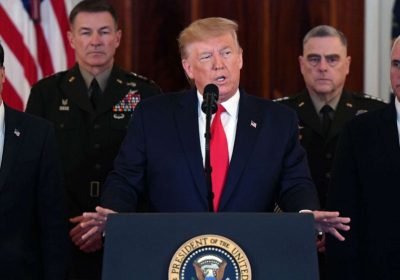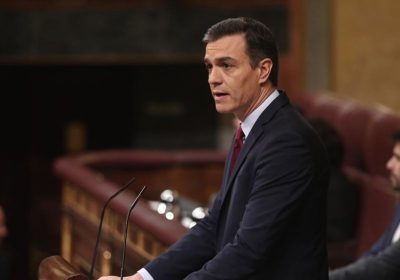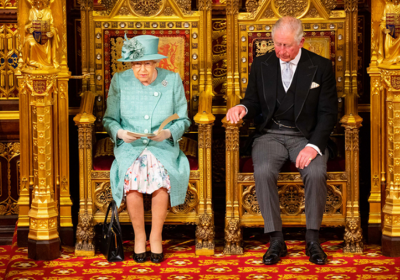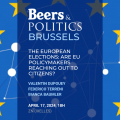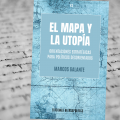I thank Anna Lindh and the government of Sweden for organizing this meeting. None has worked harder than Sweden to establish a culture of preventive thinking in the external action of the European Union and, indeed, of the international community.
This is an important moment for all organizations represented here. It is the first time that the European family of regional organizations has come together with the United Nations and our other regional partners specifically to review our joint work in conflict prevention. It builds on the initiative by Kofi Annan to highlight the growing role of regional organizations in peace-building and conflict prevention.
I will keep my comments brief. Thanks largely to the work undertaken by Sweden during its EU Presidency, we know well what is required for effective conflict prevention. There is no need to repeat that understanding here. It is clearly set out in the Goteborg Programme on Conflict Prevention which was agreed by the European Council in June last year. I believe we have made real progress on all of these issues. Much that should be done is already being done. We are not here to reinvent the wheel. What is required now is the commitment to continue translating this theoretical understanding into concrete action.
There is nothing theoretical about the challenges which face us. Let me mention a few.
Organized crime poses arguably the single greatest threat to society and long-term stability in our own region. Unless it is tackled decisively, our efforts to build peace in societies recovering from conflict will be continuously setback. And the democratic institutions which allow societies to resolve conflict in a peaceful manner will be continuously eroded. Addressing this challenge also requires new tools and new and deeper forms of cooperation between governments and between regional organizations.
A decade after the end of the cold war, we continue to live with the threat of weapons of mass destruction. The recent escalation of tensions in Kashmir has highlighted very clearly the continuing potential for nuclear conflict. I visited India and Pakistan this month and will be reporting on this visit to EU ministers later today. While tensions have abated, international attention cannot be allowed to abate. This will be my message.
We should not underestimate the threat which terrorism poses to our societies and our way of life. We are committed to addressing both the symptoms of terrorism and its root causes. But we cannot do so alone. And we cannot do so without adapting our capabilities and our patterns of cooperation.
Nor can we separate our work on conflict prevention from the talks now underway in Johannesburg at the World Summit on Sustainable Development. As resources become more scarce the potential for conflict grows. If we are to be proactive in preventing future violent conflicts, then environmental degradation, AIDS, poverty and good governance must be placed at the center of our security thinking.
In committing ourselves to address these challenges, we have to commit ourselves to a process of profound organizational change. More than anything, this requires the commitment to adapt. To adapt our thinking, our capabilities, our way of making decisions and of working together. This is perhaps our greatest challenge. I believe that the greatest obstacle to achieving it lies not outside, in the external environment. The greatest threat lies within. It lies in bureaucratic inertia and in complacency.
In the words of Abraham Lincoln: «The dogmas of the quiet past are inadequate to the stormy present. The occasion is piled high with difficulty, and we must rise with the occasion. As our case is new, so we must think anew, and act anew».
Change and adaptation lie at the heart of our work in the European Union. I want to touch briefly on three areas of change which are directly relevant to our topic today: the enlargement process, security and defense policy and the intergovernmental conference.
John Hume once remarked that the European Union is itself the most successful example of conflict prevention. I believe that our most successful tool for conflict prevention has been the enlargement process which has created an ever wider area of stability and peace in Europe. It has enabled us to encourage and support the heroic and often painful efforts of our neighbors to transform their societies and economies following the cold war. I know that Commissioner Verheugen will develop this theme in more detail.
New members will bring new borders and new neighbors. As we prepare to accept new members, we have to ensure that the benefits of enlargement do not end at our new borders. I believe the time is now ripe to examine our relationship with our new neighbors to the east to see how their transition can be further encouraged. This item will be prominent on our agenda later today at the informal ministerial in Elsinore.
As the European Union acquires a new geographical shape through enlargement, our Security and Defence Policy is also being re-shaped. If European Security and Defence Policy had a shape it would be the shape of the Western Balkans. Since I assumed the responsibilities of High Representative for the CFSP three years ago, I have concentrated my efforts on ensuring that the EU has the capabilities to act early and effectively in response to emerging crises.
We have focused on putting tangible military and police capabilities in place, on establishing crisis management structures, and on testing our procedures for crisis management. This work is integral to our ability to prevent conflict. Within months we will launch our first crisis management operation with the EU Police Mission in Bosnia-Herzegovina. Conflict prevention provides the broader concept of security which allows us to deploy these instruments in an effective way, fully integrated with the tools already available to us in the economic, social and diplomatic spheres.
Finally we are adapting our decision-making. The task of the Intergovernmental Conference will be to adapt our institutional and decision making frameworks. This may seem marginal to our work in conflict prevention. It is not. It is central to our ability to function effectively in this new environment.
Collectively, we have considerable experience in recent years of joint efforts for conflict prevention. Speakers on previous panels have referred to Afghanistan, to the Middle East and elsewhere. I will focus on the Western Balkans. Here we have undoubtedly raised our game. We have learned that without intensive diplomatic engagement, the momentum for political progress can be lost and quickly reversed. We have learned that without an international police presence, societies cannot recover from conflict. Without military capabilities capable of early deployment, crisis can rapidly escalate to war.
We have acted early and effectively in response to serious crises in FYROM and in Serbia/Montenegro. Much difficult work lies ahead of us but I think already we can draw some important lessons from this experience for our cooperation. Let me share some reflections.
We cannot understate the importance of acting early and decisively. We were slow to intervene in Kosovo. But we acted earlier in FYROM. We still face very serious challenges. Recent events in FYROM make this clear. But our early action undoubtedly averted war and as a result, the human and financial cost of peace building in FYROM is a fraction of our investment in Kosovo. We intervened at an even earlier stage to address difficulties between Serbia and Montenegro.
Diplomatic engagement has to begin at home, in agreeing a common approach by all the main international actors. In relation to FYROM and in relation to Serbia/Montenegro, we agreed a common approach at the highest level. This ensured that our efforts were mutually supporting. We cannot afford competing solutions and conflicting signals. Agreeing a common approach may not be easy. It requires persuasion and compromise. But it is the basic building block for successful conflict prevention.
Once we agree a common approach, we have to work on a clear division of responsibilities. There has to be a clear sense of what is required to address crisis and of who does what.
There is no formula for prevention of conflicts. Every conflict is different. We need a broad range of tools available to us but we may need use them in different ways and different combinations. We have guidelines but they are only that. They are no substitute for common sense and solid analysis based on a keen understanding of the local situation.
We need to back up our diplomatic and security policies with economic policies. In the Western Balkans, the Stability and Association Process has given us a very powerful instrument for prevention of conflicts. The perspective of EU membership has changed the balance of interest towards compromise.
Sometimes the balance of interest for some parties is in favor of conflict. How to we prevent conflict when the interests of one or more parties are served by conflict rather than compromise? There is a hard edge to conflict prevention, where threats, sanctions, and the preventive deployment of military assets may be necessary to stabilize the situation before more conventional incentives are offered.
We share a common purpose. The values rooted in our founding texts are common to all. They are shared also with those who cannot be in Helsingborg – the victims of conflict whether in the Balkans, in the Middle East, on the Horn of Africa and in Central Africa. Our purpose is to enable these values to flourish and find expression where they already have deep roots.
And we have long learned that we cannot act alone. We have learned this in Bosnia, where the EU is working side by side with the UN to ensure effective policing so that the victims of conflict can rebuild their lives and their societies free from fear of organized crime. We have learned this in FYROM, where EU and OSCE monitors are working side by side to ensure implementation of the March agreement. We have learned it in Kosovo where the EU, NATO, UN and OSCE have forged a new cooperative architecture.
Our task now is to sustain this impetus and to build on this work to meet the enormous challenges ahead.
Enviado por Enrique Ibañes

